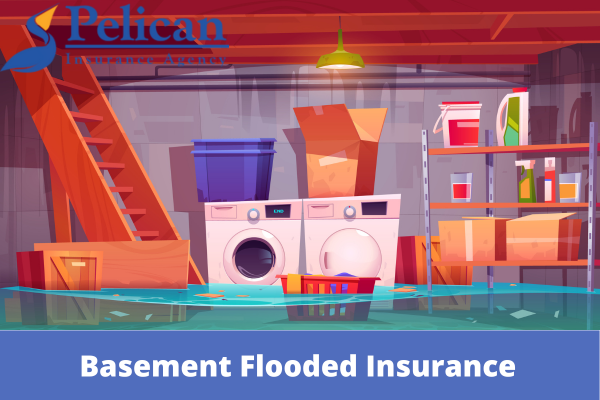My Basement Flooded What Will Insurance Cover

Discovering that your basement has flooded can be a homeowner’s worst nightmare. Whether it’s due to heavy rains, a burst pipe, or some other unforeseen event, the damage caused by a flooded basement can be extensive and costly to repair. Before you find yourself in a watery dilemma, let’s dive into the world of homeowner’s insurance and uncover the truth about what it will (and won’t) cover when your basement floods. And if you’re in a flood-prone area, remember to consider the importance of flood insurance to protect your home entirely.

Understanding Your Homeowner Insurance
Before we delve into what your insurance may cover, it’s crucial to understand the type of homeowners insurance policy you have. There are typically three main types of policies:
Standard Homeowners Insurance (HO-3)
This is the most common type of homeowners insurance and covers many perils, including water damage from burst pipes or accidental overflow.
Flood Insurance
Flood damage is usually not covered by basic homeowners insurance. If you live in a flood-prone area, you may need to obtain separate flood insurance coverage from the National Flood Insurance Program (NFIP) or a commercial insurer.
Sewer Backup Coverage
Some homeowners insurance policies offer optional sewer backup coverage. This can help if a backed-up sewer or drain causes flooding in your basement.
What’s Covered in Case of Basement Flooding?
Sudden and Accidental Water Damage
Your home insurance should cover the damage if a broken pipe or water heater breaks and floods your basement. This typically includes repairing or replacing damaged property and addressing any structural damage.
Sewer Backup
If you added sewage backup coverage to your policy, it should cover damage caused by a clogged sewer or drain. This can be particularly important if your basement flooding results from a sewage issue.
Overflow of Water
If water overflows from a sink, tub, toilet, or other fixture and causes basement flooding, your standard homeowner’s insurance policy may cover the damage.
Storm Damage
Depending on your coverage and conditions, your homeowner’s insurance may cover basement flooding caused by storms like high rainfall or storm surges.
What’s Typically Not Covered?
Flood Damage
Standard homeowners insurance policies don’t cover damage caused by flooding. To protect against flood-related damage, you’ll need to purchase a separate flood insurance policy.
Gradual Damage
Most insurance policies won’t pay to fix problems that develop slowly over time, including water seepage or leaks that could have been avoided with regular upkeep.
Neglect and Lack of Maintenance
If your basement floods due to neglect or lack of maintenance (such as failing to remedy a leaky roof or broken foundation), your insurance may not cover the damage.
Water Backup Without Coverage
If you do not have sewer backup coverage as part of your policy and your basement floods due to sewer backup, you will likely be responsible for the repair costs.
Conclusion
Understanding your homeowner’s insurance coverage is crucial when dealing with basement flooding. While some sudden damage may be covered, flood insurance is essential for flood-related damage. Optional sewer backup coverage can also be valuable. Contact Pelican Insurance Agency today to ensure you have the right protection for your home. Don’t wait; secure your most valuable asset – your home – now.